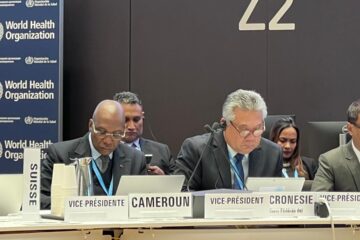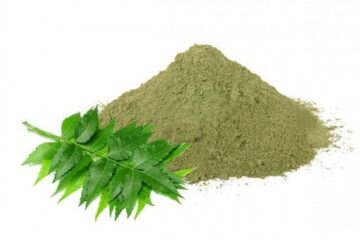Tunisia’s PM Sacked and Parliament Suspended After Violent Covid Protests

Tunisia’s president, Mais Saied has sacked the PM and suspended parliament, after violent mass protests nationwide on Sunday. Anger over the government’s handling of a massive recent spike in Covid cases has added to general unrest over the nation’s economic and social turmoil.
The recent coronavirus surge has fuelled long-standing public frustration in Tunisia. The health minister was sacked last week after a bungled vaccination drive.
On Sunday July 25, 2021, thousands of people across Tunisia demonstrated against the PM and Ennahda, the moderate Islamist ruling party. Its local headquarters in the south-western city of Touzeur were set on fire.
Coronavirus-related deaths reached a record for the country last week, passing 300 in one 24-hour period. Tunisia has one of the highest per capita death rates in the world. Vaccinations have been slow: only 7% of the 11.7 million population are fully vaccinated.
The government attempted to speed up vaccination by opening it to all over-18s during the Eid al-Adha holiday. However, the effort descended into chaos, with stampedes, shortages of supplies, and incidents of violence.
The health service is under serious strain dealing with surging Covid hospitalisations. The PM sacked the health minister – an ally of the president – prompting Mr Saied to instruct the military to take over management of the coronavirus crisis.
Tunisia’s COVID-19 surge spells disaster in more ways than one. The pandemic is exacerbating Tunisia’s growing political instability. Overwhelmed doctors and low vaccination rate is terrifying desperate locals.
When Tunisian schoolteacher Rime Hamdi lost her sense of taste and smell, and her temperature began to rise, she knew her concerns about catching COVID-19 had been realized.
But instead of going to a hospital, the 46-year-old from the city of Beja, one of the first areas in the North African nation to be hard hit by this wave of infections, stayed at home to try and deal with the disease herself. It was terrifying, she told DW.
Hamdi and her teenaged children recovered, she said, but they were eventually forced to bring her 51-year-old husband, Salim, to a private hospital in Tunis when he had trouble breathing. The local public hospitals had no space and not enough oxygen, Hamdi explained.
Hamdi is not the only Tunisian taking matters into their own hands in the face of a devastating surge in COVID-19 infections. They are well aware that their public health system is now unable to cope with the combination of rapidly spreading infections, a disorganized response by the authorities and a mostly unvaccinated population. Even some of those who are very ill prefer to stay home because at least then they can be with their loved ones when they die.
Tunisia had initially coped relatively well with the pandemic in the earlier part of 2020, bringing case numbers to almost zero last summer. But over the past two months, infection rates have risen as have the number of deaths. Official numbers show that, as of July 27, coronavirus registered cases stood at 573,394, 18,804 deaths and 471,196 recovered cases.
Local health authorities have also said the real toll is probably higher than this, estimating that as much as a third of the 12 million-strong population has already caught the virus.At the same time, less than 8% of the population is fully vaccinated and the vaccination rollout is moving slowly and, in some cases, chaotically.
Tunisian Health Minister Faouzi Mehdi organized a vaccination drive during this month’s Eid al-Adha holiday, opening centers to all Tunisians over 18. But a lack of preparation meant there were long queues and eventually violence as vaccine supplies ran out. Medical staff were attacked, people in line scuffled and clinic windows were broken.
Prime Minister Hichem Mechichi fired Mehdi on Tuesday, saying that it was criminal to have people gather in this way during the pandemic. Mechichi also said he was putting the Tunisian military in charge of further pandemic efforts.
Meanwhile, Tunisian social media are seething with videos showing things like senior doctors crying with helplessness as they are forced to choose who can be treated, overcrowded hospital rooms where the sick lie next to the dead and aggressive relatives trying to beat up medical staff they think are responsible for the crisis.
Over the past few days, numbers of infections and deaths have been dropping slightly. But public hospitals are already full. In some, clinicians have either run out of oxygen, essential for COVID-19 patients who are having trouble breathing, or they have had to ration it.
The crisis has also seen the emergence of a black market in oxygen cylinders and respirators as Tunisians try to help themselves. Prices to rent these or buy oxygen have tripled. There are numerous Facebook posts by desperate Tunisians asking where they can get access to these.
However, Covid is only one factor in the unrest. Tunisia has had nine governments since the 2011 revolution, many of them short-lived or fractured.
Deep-rooted problems of unemployment and crumbling state infrastructure that were behind the uprising have never been resolved are also related factors to his dismissal.
Tunisia now has budget deficits and debt repayment issues that could require a new loan from the International Monetary Fund (IMF). This could hurt Tunisians with the loss of state jobs and reduced subsidies on goods.

















